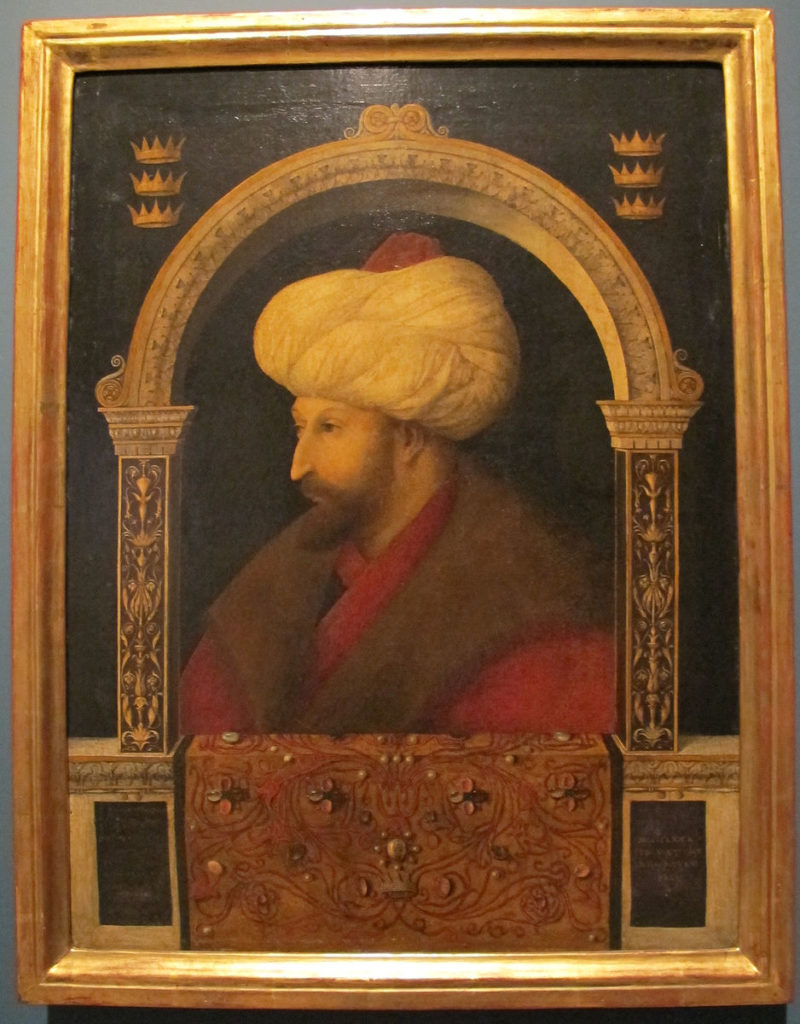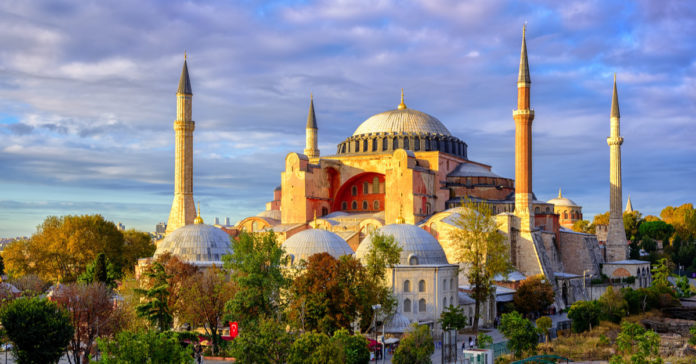Five hundred and sixty nine years ago a prophecy of the Prophet Muhammad (pbuh) was fulfilled – Constantinople (modern day Istanbul) was conquered by the Muslims.
Rasulullah (pbuh) is reported to have said: “Soon Constantinople will be defeated, how wonderful will be the leader and the army (that conquers Constantinople).”
Musnad Ahmad, vol. 4 pg. 335
Constantinople was conquered at the end of May 1453 by Ottoman Sultan Mehmed II. In recognition of his victory, the 21-year-old ruler was thereafter known as Mehmed the Conqueror.
The conquest ended the 1,058-year-old Byzantine Empire (Eastern Roman Empire), brought the Middle Ages to a close, and made Istanbul the proud new capital of the Ottoman Empire.
Constantinople
In the 15th century Constantinople was one of the most important cities in the world, straddling Europe and Asia and vital for world trade.
Subscribe to our newsletter and stay updated on the latest news and updates from around the Muslim world!
The Ottomans had already conquered significant European and Asian territories but needed to conquer Constantinople to remove an annoying hindrance to their rear and push even further into Europe.
The city had also offered refuge to challengers to the Ottoman leadership – especially disgruntled relatives of the Ottoman rulers. In fact, many of them had launched attacks from there.
Constantinople was also renowned as a place of great wealth with plenty of opportunities for booty.
But by 1453 the Roman Empire was a shadow of its former self and the city had only defended itself from invasion due to its famous double defensive walls and moat. And those who tried to attack the city by water had to contend with the Sea of Mamara and the Golden Horn.
The Christians were also divided among themselves so no help came from Europe until it was too late.
The siege
The Byzantine army numbered around 8,000 men whereas Mehmed commanded a much larger army of around 60,000.
A technological advance also altered the balance of power – canons. A Hungarian cannon maker supplied the Ottomans with a “supergun” to attack the city walls which was dragged 140 miles from Edirne to Constantinople. It could fire canons more than one mile and made a terrible noise.

But Mehmed also understood that to take Constantinople he had to surround the city from the sea as well as the land. So he amassed a blockading fleet of around 140 ships.
In response Byzantine Emperor Constantine ordered a protective chain of mail to be laid across the harbour.
So in the third week of the seven week siege Mehmed simply ordered his fleet to be picked up and carried over land and dropped back into the water behind the defensive shield. Now he could attack from land and sea.
On the land side Ottoman losses were heavy as the walls failed to yield. But as the weeks dragged on the supergun began to exert its toll and after seven weeks a final attack was prepared.
Drummers and trumpeteers, as well as the booming supergun, created the noise that would herald the final attack on May 29, 1453. Wave after wave of the sultan’s troops attacked the walls which had been softened up by the supergun.
The walls were finally breached and Constantine and thousands of Christian soldiers were killed.
Legacy
The Hagia Sophia was then the greatest building in the world – the crowing glory of Christendom and seat of the Eastern Orthodox Church. And one of Mehmed’s first acts was to order it to be converted into a mosque, although he left other churches untouched.
The Roman Empire had finally come to an end after 1,500 years of history. It was a military and psychological blow of huge proportions to the Christian world.
As for the Ottomans, they now possessed a capital at the junction of two continents from which they could consolidate and continue to spread their domains.
And Mehmed II would go down in history as one of Islam’s great heroes – securing Muslim rule and expanding it for centuries.


















